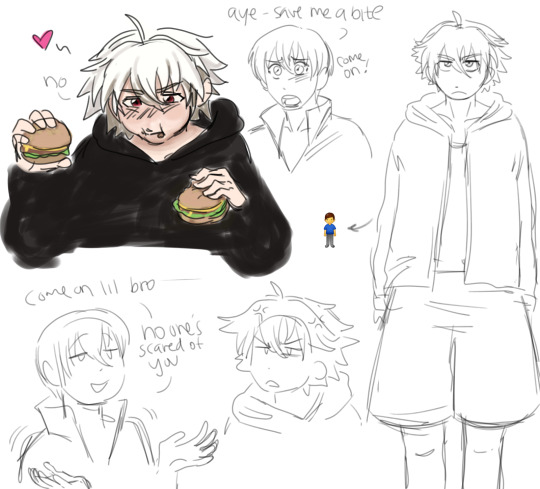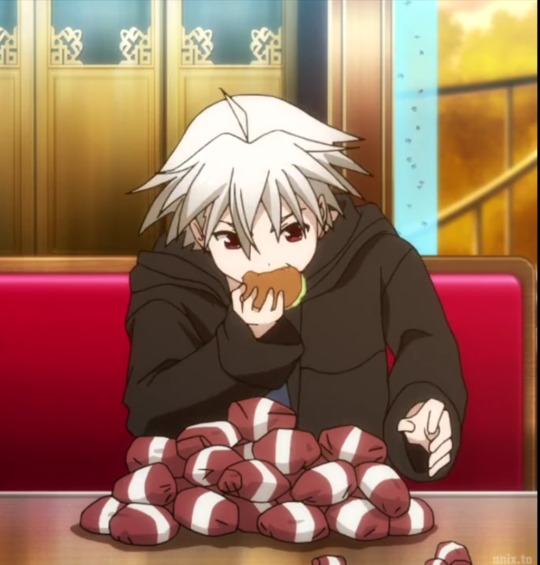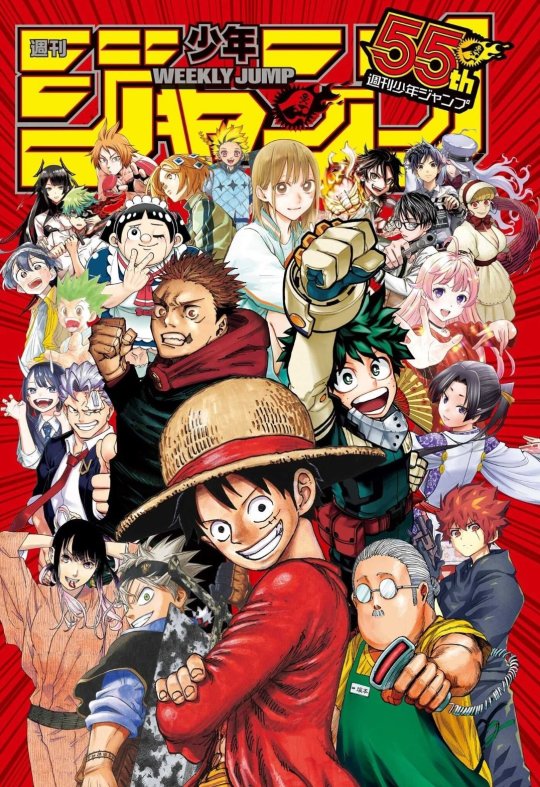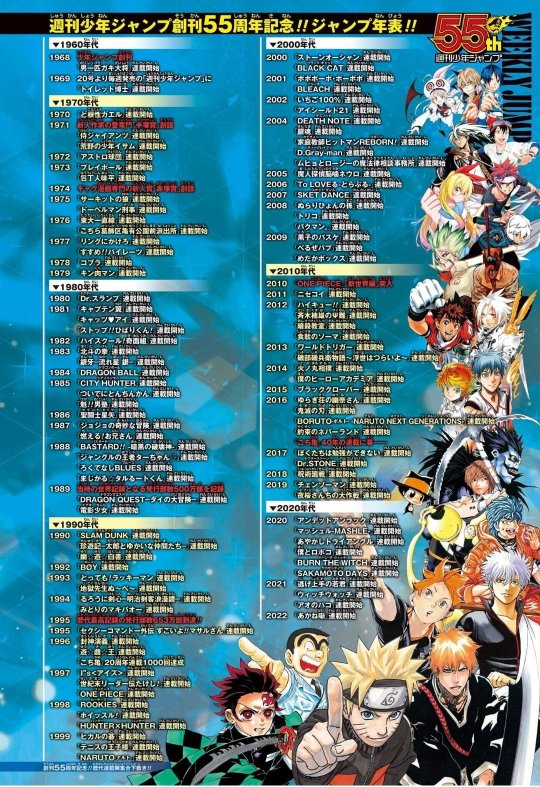#Kobayashi Yoshio
Explore tagged Tumblr posts
Text

nom nom nom

The inspo ✨️
#hanasaki kensuke#kobayashi yoshio#trickster: edogawa ranpo shounen tantei dan yori#trickster anime#trickster fanart#mimi thats me me#lol dont look thro that tag :))))#barely passed the gay episode and im trying not to get spoilers#but i cant help looking through them ACK#i gotta finish the series fast before i lose my mindddd#anyway#my art#once i saw kobayashi w the beesechurg...#i HAD to drawr it#need to drawr him chubbier next huehuehue#his hair is my nightmare#but also im just not good @ drawrin hair#fuck#im rambling in the tags#dear diary i#IM CRAZY
12 notes
·
View notes
Text
Notas de Animes favoritos
#10.1. Noragami💕
Todos nos hemos sentido perdidos alguna vez en la vida, y eso está bien, a veces solo necesitamos salirnos del camino, conocer gente nueva, cometer errores, llorar por nuestras heridas y al final, encontrarnos de verdad❤️
#10.2. Trickster: Edogawa Rampo Shōnen Tantedai Yori💕
"Si quieres podríamos presionar borrar y hacer cómo que nada de esto ha sucedido, pero, ¿podrías levantar la cabeza con orgullo a eso?"❤️
No hay desempate, solo aprecio ambas series con lo sentimentales que son🥰




6 notes
·
View notes
Text





Godzilla vs. King Ghidorah (Kazuki Omori, 1991)
Cast: Kosuke Toyohara, Anna Nakagawa, Megumi Odaka, Katsuhiko Sasaki, Akiji Kobayashi, Tokuma Nishioka, Yoshio Tsuchiya, Chuck Wilson, Richard Berger, Robert Scott Field. Screenplay: Kazuki Omori. Cinematography: Yoshinori Sekiguchi. Designer: Shinji Nishikawa. Film editing: Michiko Ikeda. Music: Akira Ifukube.
#Godzilla vs. King Ghidorah#Kazuki Omori#Kosuke Toyohara#Anna Nakagawa#Megumi Odaka#Katsuhiko Sasaki#Akiji Kobayashi#Tokuma Nishioka#Yoshio Tsuchiya
14 notes
·
View notes
Text
Now watching:

#destroy all monsters#ishiro honda#Akira Kubo#Jun Tazaki#yukiko kobayashi#yoshio tsuchiya#kaiju#kaiju summer#godzilla#rodan#mothra#anguirus#gorosaurus#Manda#minilla#kumonga#varan#baragon#king ghidorah
11 notes
·
View notes
Text

Todays trap of the day is Yoshio Kobayashi from the anime Rampo Kitan: Game of Laplace
19 notes
·
View notes
Text

one of my favorite terrible anime
#cake's doodles#trickster#yoshio kobayashi#trickster edogawa ranpo shounen tantaidan yori#no one cares about this show but me and that is a burden I shall bare
4 notes
·
View notes
Text
This was too long for images
0 notes
Text









Kwaidan (1964)
Directed by Masaki Kobayashi
Cinematography by Yoshio Miyajima
#art#art history#artists on tumblr#aesthetic#film photography#beautiful photography#film#movie#cult film#kwaidan#kobayashi#masaki kobayashi#japan#japanese art#japanese#japanese culture#japanese language#painting#japanese movie#japanese film#japanese folklore#japanese flower#japanese fashion#asian art#asian movie#asian film#60s art#60s#60s movies#60s film
377 notes
·
View notes
Text
Detective Conan #264 - #265 : Courtroom Confrontation: Kisaki vs. Kogoro (TV Anime Original)
Screenplay : 金子裕 Yutaka Kaneko
Storyboard :小林孝嗣 Takatsugu Kobayashi (#264) - 三家本泰美 Yasumi Mikamoto (#265)
Episode Director : 鈴木吉男 Yoshio Suzuki (#264) - 伊藤真朱 Mashu Itou (#265)
Animation Director : 青野厚司 Atsushi Aono (#264) - 平岡正幸 Masayuki Hiraoka (#265)
The Courtroom Confrontation Series is the best thing that ever happened to the Detective Conan anime. Each episode of this mini-series has its own unique atmosphere, distinct from the others. It's a shame there aren't more of this kind of mini-series.


In these two episodes, the artists clearly stand out from those the series usually relies on, especially the storyboarders. This isn’t the usual staff rotation, and it’s always refreshing to see new names making their mark. In terms of photography/cel compositing and animation, two approaches stand out : on one hand, a focus on 'realism', and on the other, an emphasis on showcasing the strengths of the color palette. For example, the striking contrast between the bright glowing yellow and Eri’s purple clothes, especially in enclosed spaces, creates a strong visual presence.

Another clever use of this same effect to intensify the drama this time : close up shots, dark backgrounds to make the face stand out, and the reflection of the light source on the glasses.

I really like how the night is depicted in the two episodes, with a sort of washed-out gray-blue palette that fits the ongoing story perfectly. It highlights the restaurants and signs, creating a calm and elegant atmosphere thanks to the soft light sources. It's neither too dark for the night nor too blue. It's more of a 'realistic night' than the usual flashy one.

Speaking of 'realism', I’m also referring to the drawings. Masayuki Hiraoka's corrections in #265 are much sharper and more defined compared to Aono's in #264, whose style is softer and rounder. though, his latest drawing style in Conan, there’s a bit less roundness compared to the earlier days. I would have loved to have Hiraoka as the Animation Director for both of these episodes instead of just one to strengthen what I mentioned earlier. Eri's drawings by Hiraoka are stunning, some of the finest in the anime. His shading style, (and the shape of Eri's hair strands, not always uniform like Aono's for exemple), made him suited for the 'realistic' style in Conan.


Eri by Atsushi Aono, the Animation Director in #264 and the comparison between him and Masayuki Hiraoka.


There are many interesting layouts. The artists put in a lot of effort and the attention to detail is remarkable. Eri's office interior for exemple, with the detailed background art that effectively conveys the composition of the room without venturing into something overly "spacious."

Or the Mimasu restaurant interior :

Bonus :


41 notes
·
View notes
Text


Weekly Shonen Jump 55th anniversary appendix in Weekly Shonen Jump 2023 issue #33
1968 Weekly Shonen Jump Issue #1 Otoko Ippiki Gaki-Daisho by Hiroshi Motomiya 1969 Dr. Toilet by Kazuyoshi Torii 1970 The Gutsy Frog by Yasumi Yoshizawa 1971 Tezuka Manga Award 1st Edition Samurai Giants by Ikki Kajiwara & Ko Inoue Boy of the Wilderness Isamu by Soji Yamakawa & Noboru Kawasaki 1972 Astro Kyudan by Shiro Tōzaki & Norihiro Nakajima 1973 Play Ball by Akio Chiba Hochonin Ajihei by Jiro Gyu & Jo Big 1974 Akatsuka Manga Award 1st Edition 1975 The Circuit Wolf by Satoshi Ikezawa Doberman Deka by Buronson & Shinji Hiramatsu 1976 Toudai Icchokusen by Yoshinori Kobayashi Kochikame by Osamu Akimoto 1977 Ring ni Kakero by Masami Kurumada Susume!! Pirates by Hisashi Eguchi 1978 Cobra by Buichi Terasawa 1979 Kinnikuman by Yudetamago 1980 Dr. Slump by Akira Toriyama 1981 Captain Tsubasa by Yoichi Takahashi Cat's Eye by Tsukasa Hojo Stop!! Hibari-kun! by Hisashi Eguchi 1982 High School! Kimengumi by Motoei Shinzawa 1983 Fist of the North Star by Buronson & Tetsuo Hara Ginga -Nagareboshi Gin- by Yoshihiro Takahashi 1984 DRAGON BALL by Akira Toriyama 1985 City Hunter by Tsukasa Hojo Miraculous Tonchinkan by Koichi Endo Sakigake!! Otokojuku by Akira Miyashita 1986 Saint Seiya by Masami Kurumada 1987 JoJo's Bizarre Adventure by Hirohiko Araki The Burning Wild Man by Tadashi Sato 1988 Bastard!! by Kazushi Hagiwara Jungle King Tar-chan by Masaya Tokuhiro Rokudenashi BLUES by Masanori Morita Magical Taluluto by Tatsuya Egawa 1989 Weekly Shonen Jump reaches 5.000.000 copies in circulation Dragon Quest: The Great Adventure of Dai by Riku Sanjo & Koji Inada Video Girl Ai by Masakazu Katsura 1990 SLAM DUNK by Takehiko Inoue Chinyuki by Man Gataro Yu Yu Hakusho by Yoshihiro Togashi 1992 Hareluya II Boy by Haruto Umezawa 1993 Tottemo! Luckyman by Hiroshi Gamo Hell Teacher Nube by Makura Sho & Takeshi Okano 1994 Midori no Makibao by Tsunomaru Rurouni Kenshin by Nobuhiro Watsuki 1995 Weekly Shonen Jump reaches 6.530.000 copies in circulation Sexy Commando Gaiden: Sugoi yo!! Masaru-san by Kyosuke Usuta 1996 Hoshin Engi by Ryu Fujisaki Yu-Gi-Oh! by Kazuki Takahashi Kochikame 20th Anniversary & Chapter 1000 1997 I's by Masakazu Katsura Seikimatsu Leader den Takeshi! by Mitsutoshi Shimabukuro ONE PIECE by Eiichiro Oda 1998 Rookies by Masanori Morita Whistle! by Daisuke Higuchi HUNTERXHUNTER by Yoshihiro Togashi 1999 Hikaru no Go by Yumi Hotta & Takeshi Obata The Prince of Tennis by Takeshi Konomi NARUTO by Masashi Kishimoto 2000 JoJo's Bizarre Adventure: Stone Ocean by Hirohiko Araki BLACK CAT by Kentaro Yabuki 2001 Bobobobo Bobobo by Yoshio Sawai BLEACH by Tite Kubo 2002 Strawberry 100% by Mizuki Kawashita Eyeshield 21 by Riichiro Inagaki & Yusuke Murata 2004 Death Note by Tsugumi Ohba & Takeshi Obata Gintama by Hideaki Sorachi Katekyo Hitman Reborn! by Akira Amano D.Gray-man by Katsura Hoshino Muhyo & Roji's Bureau of Supernatural Investigation by Yoshiyuki Nishi 2005 Neuro: Supernatural Detective by Yusei Matsui 2006 To Love Ru by Saki Hasemi & Kentaro Yabuki 2007 Sket Dance by Kenta Shinohara 2008 Nura: Rise of the Yokai Clan by Hiroshi Shiibashi Toriko by Mitsutoshi Shimabukuro Bakuman. by Tsugumi Ohba & Takeshi Obata 2009 Kuroko's Basketball by Tadatoshi Fujimaki Beelzebub by Ryuhei Tamura Medaka Box by Nisio Isin & Akira Akatsuki 2010 ONE PIECE New World Begins 2011 Nisekoi by Naoshi Komi 2012 Haikyu!! by Haruichi Furudate The Disastrous Life of Saiki K. by Shuichi Aso Assassination Classroom by Yusei Matsui Food Wars: Shokugeki no Soma by Yuto Tsukuda & Shun Saeki 2013 World Trigger by Daisuke Ashihara Isobe Isobee Monogatari by Ryo Nakama 2014 Hinomaru Zumo by Kawada My Hero Academia by Kohei Horikoshi 2015 Black Clover by Yuki Tabata 2016 Yuuna and the Haunted Hot Springs by Tadahiro Miura Kimetsu no Yaiba by Koyoharu Gotouge BORUTO by Mikio Ikemoto & Ukyo Kodachi The Promised Neverland by Kaiu Shirai & Posuka Demizu Kochikame 40th Anniversary and Serialization End 2017 We Never Learn by Taishi Tsutsui Dr. STONE by Riichiro Inagaki & Boichi 2018 Jujutsu Kaisen by Akutami Gege
2019 Chainsaw Man by Tatsuki Fujimoto Mission: Yozakura Family by Hitsuji Gondaira 2020 Undead Unluck by Yoshifumi Tozuka MASHLE by Hajime Komoto Ayakashi Triangle by Kentaro Yabuki Me & Roboco by Shuhei Miyazaki BURN THE WITCH by Tite Kubo SAKAMOTO DAYS by Yuto Suzuki 2021 The Elusive Samurai by Yusei Matsui WITCH WATCH by Kenta Shinohara Blue Box by Kouji Miura 2022 Akane Banashi by Yuki Suenaga & Takamasa Moue
#Weekly Shone Jump#One Piece#Dragon Ball#Naruto#Slam Dunk#KochiKame#Demon Slayer#Bleach#JoJo's Bizarre Adventure#Fist of the North Star#My Hero Academia#Hunter x Hunter#Jujutsu Kaisen#Yu Yu Hakusho#Kinnikuman#Rurouni Kenshin#The Prince of Tennis#Rokudenashi Blues#Gintama#Haikyu!!#manga#long post#late post
221 notes
·
View notes
Text
Lupin the 3rd Part II (1977) ルパン三世




Director: Noboru Ishiguro / Koichi Sasaki / Hayao Miyazaki / Kyosuke Miku / Hideo Nishimaki Screenwriter: Kaoru Miyazaki / Tsuji Yamatoya / Tadaaki Yamazaki / Takumi Konno / Hiroshi Kaneko / Masu Shiroyama / Tsune Mori / Yu Taue / Shunichiro Koyama / Shoichiro Okubo / Yu Sarata / Yuki Shimada / Kaoru Shichijo / Hiroyasu Yamaura / Yoshiyuki Okuyama / Tomoaki Takahashi / Ya Shiono / Kyoko Jono / Masayuki Tsuikawa / Akinari Takato / Mitsuo Yosomono / Tatsumasa Sugimura / Kiyohide Ohara / Yoshio Ura / Misaki Sugi / Kazuyuki Sugi / Takehiko Mokuno / Shigeru Komiya / Takao Hamada / Wataru Takao / Keizo Fujimoto / Ichiro Hakimoto / Keiko Sugie / Yoshihisa Araki / Hideo Takayashiki / Kuno Mishima / Issui Katsura / Maji Kondo Starring: Yamada Yasuo / Kobayashi Kiyoshi / Masuyama Eiko / Inoue Makio / Natani Goro Genre: Animation / Fantasy / Adventure Official website: http://lupin-3rd.net/index.html Country/Region of Production: Japan Language: English/French/Italian/Tagalog/Japanese Date: 1977-10-03 Number of episodes: 155 Single episode length: 30 minutes (155 episodes) Also known as: Rupan sansei: Part II / The New Lupine III / 鲁邦三世TV系列2 / TV第2シリーズ IMDb: tt0159192 Type: Appreciation
Summary:
The series, based on the Lupin III manga written by Monkey Punch beginning in 1967, centers on the adventures of Lupin III, the grandson of Arsène Lupin, the gentleman thief of Maurice Leblanc's series of novels. He is joined by Daisuke Jigen, crack-shot and Lupin's closest ally; Fujiko Mine, the femme fatale and Lupin's love interest who works against Lupin more often than with him; and Goemon Ishikawa XIII, a master swordsman and the descendant of Ishikawa Goemon, the legendary Japanese bandit. Lupin is often chased by Inspector Zenigata, the dogged detective who has made it his life mission to catch Lupin.
Source: https://en.wikipedia.org/wiki/Lupin_the_3rd_Part_II
Link: https://www.youtube.com/watch?v=OwJbP_mpnxw&list=PLj2Ugc-vxcWEvomV4nRhXY9ESB3XRLFiw
#Lupin the 3rd Part II#ルパン三世#Rupan sansei: Part II#The New Lupine III#鲁邦三世TV系列2#TV第2シリーズ#jttw media#jttw television#television#animation#appropriation#inspiration#sun wukong#tang sanzang#sha wujing#zhu bajie#golden horn#silver horn
10 notes
·
View notes
Text
KOKIA news: Kaji Fes.2023 at Budokan guest performance
Via KOKIA.com/news

“Hello, this is KOKIA. Today, I’m letting you know that I will get to perform at Kaji Fes. 2023, the live performance to commemorate Yuki Kajiura’s 30th anniversary. After I got to work together with her about 25 years ago, I’ve been looking forward to join up again for a long time, and that hope is coming true now in a wonderful way.”
【Live】30th Anniversary Yuki Kajiura LIVE vol.#19 -Kaji Fes.2023- guest appearance on day 2, December 9 (Saturday)!
This year’s performance will be a compilation of Yuki Kajiura for her 30th anniversary since her debut. It’s the second time Kaji Fes. will be held since it was done for the 20th anniversary. Appropriate for a 30th anniversary, it’ll be a festival that many splendid guests will participate in. Make sure not to miss out on this chance!
“30th Anniversary Yuki Kajiura LIVE vol.#19 -Kaji Fes.2023-”
(T/N: The following information is also taken from the Notice for overseas travelers’ ticket sales on the official website, which is the same as on KOKIA’s news page, except including notes on ticket sales for overseas travelers.)
[Schedule]
December 8, 2023 (Friday) 17:00 open/18:00 start December 9, 2023 (Saturday) 15:00 open/16:00 start
[Venue] Nippon Budokan 2-3 Kitanomaru Koen, Chiyoda-ku Tokyo, Japan 102-8321 https://www.nipponbudokan.or.jp/
Performers: Yuki Kajiura/FictionJunction (Piano/Chorus)
Vocals: KAORI, KEIKO, YURIKO KAIDA, Joelle, rito, and LINO LEIA
Musicians: FRONT BAND MEMBERS (Kouichi Korenaga on guitar, Kyouichi Sato on drums, Tomoharu “Jr.” Takahashi on bass, Konno Strings [Hitoshi Konno and Masahiko Fujidou on violin, Kazuhiro Kobayashi on viola, Takayoshi Okuizumi on cello], Rie Akagi on flute, Obawo Nakajima on percussions, Yoshiaki Satou on accordion, Naoki Nakahara on uilleann pipes, and Yoshio Ohira as the manipulator)
【Guest】
Day 1: Aimer, Yuri Kasahara, Revo (Sound Horizon/Linked Horizon), and Remi
Day 2: ASCA, Eri Itou, KOKIA, Hanae Tomaru, JUNNA, Hikaru, and Aira Yuuki
【Prices】
All tickets assigned seating: ¥ 9,900 (tax included) ※ No entrance for pre-school children (under the age of five) ※ The program performed on the 2 days will be different from each other.
【Tickets】 Ticket agency pre-sale start: June 15 (Thursday), 12:00~ Regular sales: October 21, 2023 (Thursday), 10:00~
Please visit the special ‘Kaji Fes.2023′ website for more information. ▶https://fictionjunction.com/kajifes2023
[Quantity limits]
One person can buy up to four tickets per concert. *It’s possible for an individual to purchase tickets once per performance date.
[Overseas travelers’ ticket sales]
☆Tickets available from noon (Japan Standard Time) of June 15th (Thursday) to 11:59 PM on June 25th (Sunday)
☆Direct link to purchase:
https://ib.eplus.jp/kajifes2023
*Quantity limits: One person can buy up to four tickets per performance date. (Possible to purchase tickets for both performance dates) *Please refer to the ticket sales website for further information on purchasing and any additional precautions. *Tickets are sold on a first-come-first-served basis. Please make sure to purchase during the specified timeframe. *Tickets purchased need to be picked up on the day of the performance at the venue’s box offices.
5 notes
·
View notes
Text

Raizo Ichikawa in Ken (Kenji Misumi, 1964)
Cast: Raizo Ichikawa, Yusuke Kawazu, Hisaya Morishigi, Akio Hasegawa, Noriko Sengoku, Keiju Kobayashi, Yuko Konno, Junko Kozakura, Yoshio Inaba, Rieko Sumi, Kuniichi Takami. Screenplay: Kazuo Funahashi, based on a novel by Yukio Mishima. Cinematography: Chikashi Makiura. Art direction: Akira Naito. Film editing: Kanji Sukanuma. Music: Sei Ikeno.
Kenji Misumi's Ken, also known as The Sword, is based on a novel by Yukio Mishima and shares that author's focus on Japanese tradition. It centers on Jiro Kokubun (Raizo Ichikawa), the captain of his university's kendo club, which is preparing for a tournament against a rival university. Kendo is swordplay, performed with bamboo swords, and Kokubun is obsessively devoted to the sport -- so much so, in fact, that he almost loses out on the captaincy because his coach fears he's a little too intense. His chief rival for the position, Kagawa (Yusuke Kawazu), is equally proficient, but not so obsessive. Eventually this leads to a conflict between the two young men, especially after Kokubun punishes Kagawa for a minor infraction, using him to set an example of complete devotion to the sport. Kagawa retaliates by asking a pretty classmate, Kiuchi (Noriko Sengoku), to try to seduce the chaste and ascetic Kokubun. But the real crisis comes when the club goes on a training retreat in which Kokubun tries to instill the same devotion to the sport in the rest of the team. It takes place in a seaside town, but Kokubun prohibits swimming in the ocean even though the trainees suffer from the intense heat of summer. Kagawa seizes another opportunity to undermine Kokubun, with terrible consequences. The film sympathizes with Kokubun, turning him into a tragic figure, while at the same time suggesting that his intense virtue, modeled on the bushido code of the samurai, is out of place in a modern context. Handsomely photographed and superbly acted, Ken is the middle film in Misumi's Sword Trilogy, which includes Kiru (1962) and Kenki (1965).
1 note
·
View note
Text
Destroy All Monsters| Episode 349
New Post has been published on https://esonetwork.com/destroy-all-monsters-episode-349/
Destroy All Monsters| Episode 349

MONSTER ATTACK! returns following a lengthy break with a look at the 1968 Kaiju Classic “Destroy All Monsters,” Starring Akira Kubo, Yukko Kobayashi, Kyoko Ai, Jun Tazaki, Yoshio Tsuchiya and directed by Ishiro Honda. ark Maddox joins Jim for a rousing discussion on this monster fest as well as a look at future shows. Join us for this special episode of MONSTER AATTACK!, The Podcast Dedicated To Old Monster Movies.
#Classic Kaiju film#Destroy All Monsters#ESO Network#Ishiro Honda#Mark Maddox#MONSTER ATTACK! RETURNS
0 notes
Text

More old artt but bringing back my bois because I miss them
#trickster#trickster edogawa ranpo shounen tanteidan yori#trickster fanart#hanasaki kensuke#kobayashi yoshio
12 notes
·
View notes